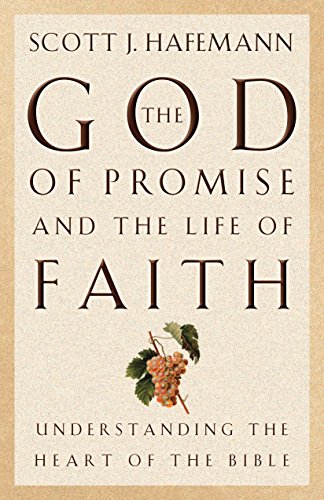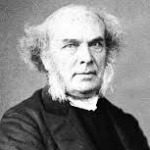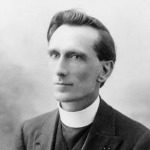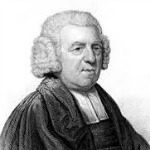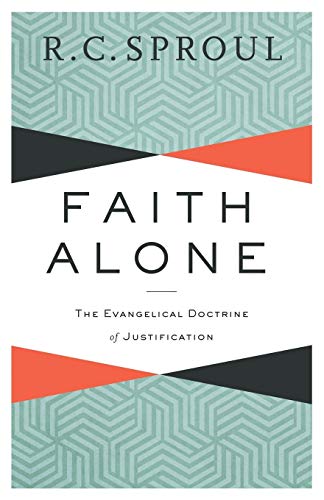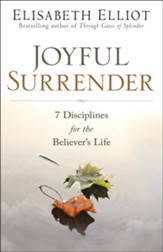Quotes about Faith-God_in
Our heavenly King is pleased with all our graces: hot zeal and cool patience pleaseth Him; cheerful thankfulness and weeping repentance pleaseth Him; but none of them are welcome to Him without faith, as nothing can please Him without Christ.
A Puritan Golden Treasury, compiled by I.D.E. Thomas, by permission of Banner of Truth, Carlisle, PA. 2000, p. 102.
Righteousness never comes by faith in self, but by faith in God.
The Grace and Truth Paradox, 2003, Used by Permission from Eternal Perspective Ministries, www.epm.org, p. 68.
Get this book!
Trust the past to God’s mercy, the present to God’s love and the future to God’s providence.
Man’s dislike at God’s sovereignty arises from his suspicion of God’s heart… we are not always comfortable with the idea of being wholly at the disposal of God.
God loves with a great love the man whose heart is bursting with a passion for the impossible.
If God is not sovereign in the decisions and actions of other people as they affect us, then there is a whole major area of our lives where we cannot trust God; where we are left, so to speak, to fend for ourselves.
Trusting God, 1988, p. 58. Used by permission of NavPress – www.navpress.com. All rights reserved. Get this book!
I acknowledge it often seems more difficult to trust God than to obey Him. The moral will of God given to us in the Bible is rational and reasonable. The circumstances in which we must trust God often appear irrational and inexplicable….Obeying God is worked out within well-defined boundaries of God’s revealed will. Trusting God is worked out in an arena that has no boundaries. We do not know the extent, the duration, or the frequency of the painful, adverse circumstances in which we must frequently trust God. We are always coping with the unknown.
Trusting God, 1988, p. 17. Used by permission of NavPress – www.navpress.com. All rights reserved. Get this book!
It is just as important to trust God as it is to obey Him. When we disobey God we defy His authority and despise His holiness. But when we fail to trust God we doubt His sovereignty and question His goodness. In both cases we cast aspersions upon His majesty and His character. God views our distrust of Him as seriously as He views our disobedience.
Trusting God, 1988, p. 18. Used by permission of NavPress – www.navpress.com. All rights reserved. Get this book!
In order to trust God, we must always view our adverse circumstances through the eyes of faith, not of sense. And just as the faith of salvation comes through hearing the message of the gospel (Romans 10:17), so the faith to trust God in adversity comes through the Word of God alone. It is only in the Scriptures that we find an adequate view of God’s relationship to and involvement in our painful circumstances. It is only from the Scriptures, applied to our hearts by the Holy Spirit, that we receive the grace to trust God in adversity.
Trusting God, 1988, p. 18. Used by permission of NavPress – www.navpress.com. All rights reserved. Get this book!
God’s plan and His ways of working out His plan are frequently beyond our ability to fathom and understand. We must learn to trust when we don’t understand.
Trusting God, 1988, p. 20. Used by permission of NavPress – www.navpress.com. All rights reserved. Get this book!
No detail of your life is too insignificant for your heavenly Father’s attention; no circumstance is so big that He cannot control it.
Trusting God, 1988, p. 40. Used by permission of NavPress – www.navpress.com. All rights reserved. Get this book!
God is sovereign over people. He will move their hearts to cause them to do His will, or He will restrain them from doing anything contrary to His will. But it is His will, His agenda for our lives, that God will guard, protect, and advance. We must learn to live by His agenda if we are to trust Him.
Trusting God, 1988, p. 71. Used by permission of NavPress – www.navpress.com. All rights reserved. Get this book!
But though we should never ask a demanding “why?” we may and should ask God to enable us to understand what He may be teaching us through a particular experience. But even here we must be careful that we are not seeking to satisfy our souls by finding some spiritual “good” in the adversity. Rather we must trust God that He is working in the experience for our good, even when we see no beneficial results. We must learn to trust God when He doesn’t tell us why, when we don’t understand what He is doing.
Trusting God, 1988, p. 125. Used by permission of NavPress – www.navpress.com. All rights reserved. Get this book!
God is able to work with or without human means. Though He most often uses them, He is not dependent upon them. Furthermore, He will frequently use some means altogether different from that which we would have expected. Sometimes our prayers for deliverance from some particular strait are accompanied by faith to the extent we can foresee some predictable means of deliverance. But God is not dependent upon means that we can foresee. In fact, it seems from experience that God delights to surprise us by His ways of deliverance to remind us that our trust must be in Him and Him alone.
Trusting God, 1988, p. 203. Used by permission of NavPress – www.navpress.com. All rights reserved. Get this book!
[God] is at work in all the circumstances of your life to bring out the good for you, even if you had never heard of Romans 8:28. His work is not dependent upon your faith. But the comfort and joy that statement is intended to give you is dependent upon your believing it, upon your trusting in Him who is at work, even though you cannot see the outcome of that work.
The Practice of Godliness, NavPress, 1996, p. 116. Used by permission of NavPress – www.navpress.com, All rights reserved.
A gracious soul may look through the darkest cloud and see God smiling on him.
As God can protect His people under the greatest despotism, so the utmost civil liberty is no safety to them without the immediate protection of His Almighty arm. I fear that Christians in this country have too great a confidence in political institutions…[rather] than of the government of God.
When once you are rooted in Reality, nothing can shake you. If your faith is in experiences, anything that happens is likely to upset that faith; but nothing can ever upset God or the almighty Reality of Redemption; base your faith on that and you are as eternally secure as God. When once you get into personal contact with Jesus Christ, you will never be moved again.
Faith never knows where it is being led, but it loves and knows the One who is leading.
Have you been asking God what He is going to do? He will never tell you. God does not tell you what He is going to do He reveals to you who He is. Do you believe in a miracle working God, and will you "go out" in complete surrender to Him until you are not surprised one iota by anything He does?
We may not demand of a sovereign Creator that He explain Himself to His creatures… God had good and sufficient reasons for His actions; we trust His sovereign wisdom and love.
It should fill us with joy, that infinite wisdom guides the affairs of the world. Many of its events are shrouded in darkness and mystery, and inextricable confusion sometimes seems to reign. Often wickedness prevails, and God seems to have forgotten the creatures that He has made. Our own path through life is dark and devious, and beset with difficulties and dangers. How full of consolation is the doctrine, that infinite wisdom directs every event, brings order out of confusion, and light out of darkness, and, to those who love God, causes all things, whatever be their present aspect and apparent tendency, to work together for good.
Manual of Theology, Gano Books, 1982 edition of original 1857 edition published by The Southern Baptist Publication Society, p. 86-87.
An evidence that our will has been broken is that we begin to thank God for that which once seemed so bitter, knowing that His will is good and that, in His time and in His way, He is able to make the most bitter waters sweet.
It is natural…for us to trust in ourselves. It is so natural, and so confirmed by the habits of a lifetime, that no ordinary difficulties or perplexities avail to break us of it. It takes all God can do to root up our self-confidence. He must reduce us to despair; He must bring us to such an extremity that the one voice we have in our hearts, the one voice that cries to us wherever we look round for help, is death, death, death. It is out of this despair that the superhuman hope is born. It is out of this abject helplessness that the soul learns to look up with new trust to God… How do most of us attain to any faith in Providence? Is it not by proving, through numberless experiments, that it is not in man that walketh to direct his steps? Is it not by coming, again and again, to the limit of our resources, and being compelled to feel that unless there is a wisdom and a love at work on our behalf, immeasurably wiser and more benign than our own, life is a moral chaos?… Only desperation opens our eyes to God’s love.
Our Physician makes these outward blisters in our bodies, to draw out the poisonous corruption that is in our souls so therefore let us endure what He imposes with patience, and never murmur against Him for effecting His cure; knowing that it is but childish folly to abhor the medicine more than the disease.
A Puritan Golden Treasury, compiled by I.D.E. Thomas, by permission of Banner of Truth, Carlisle, PA. 2000, p. 205.
Are you settling for a vision that is too small in your life? Are you choosing the easy option because you don’t really believe God can bring about something great in your life? Yes, God sometimes calls us to be faithful in the little things, but is that really your calling, or are you afraid to hope for anything more? And what about your church? Do you expect to see God do great things there? Do you pray for God to do great things there, or are you content just to survive? All too often we don’t really expect God to do anything dramatic, do we? It seems too difficult to imagine.
Living in the Gap Between Promise and Reality, P&R Publishing, 1999, p. 20. Used by Permission.
That’s what it means to live by faith – God reveals Himself to us, and we respond to Him trustingly, taking Him at His Word.
Living in the Gap Between Promise and Reality, P&R Publishing, 1999, p. 30. Used by Permission.
[We can find] that it was one thing to “believe God and have it credited to [us] as righteousness” (Gen . 15:6) but quite another to move that belief from [our] head into [our] heart and trust God completely in the everyday decisions of life.
Living in the Grip of Relentless Grace, P&R Publishing, 2002, p. 3. Used by Permission.
Real satisfaction comes not in understanding God’s motives, but in understanding His character, in trusting in His promises, and in leaning on Him and resting in Him as the Sovereign who knows what He is doing and does all things well.
Is God Really in Control, Joni and Friends, 1987, p. 9, Used by Permission, www.joniandfriends.org.
To the world at large this was a sad waste of five young lives. But God has His plan and purpose in all things… The prayers of the widows themselves are for the Aucas. We look forward to the day when these savages will join us in Christian praise. Plans were promptly formulated for continuing the work of the martyrs.
This, then, is the sense in which people are totally depraved: we have all treated God in the most insulting way by registering again and again a vote of no confidence in His promises.
The Unity of the Bible, Zondervan, 1994, p. 193. Get this book!
Trusting God doesn’t give us an excuse to idly sit back, doing nothing. Praying to God and asking Him to help doesn’t allow us to be lazy. We need to trust God and do our part in the strength and guidance He provides.
Excerpted from: Growing Up Christian, P&R, 2005, p. 162. Used by Permission. Get this book!
For His part, God forgives our sins, reveals His glory, rescues us from our heart of disbelief with its life of disobedience, and brings us back to Himself again and again so that we might learn to live by faith in His promises. For our part, Abraham, as the "father" of the faithful (Rom. 4:16-17), is the beginning of a people who respond by learning over a lifetime to look to God alone to meet their needs.
When Christians suffer, they, like Paul, can consequently take courage from the fact that their lives will mediate to others the power of the Resurrection, either through God’s act of deliverance or, even more profoundly, through the testimony of their endurance. In either case we are summoned to trust God in the midst of our afflictions in the confidence that God will ultimately deliver us. By so doing, God’s power will be manifest in our weakness.
By repenting of our hope in the promises of this world – the greatest of which become merely rusted metal and short-lived pleasures – and trusting in God’s promises, we develop a new lifestyle of growing obedience to God, rather than following the cadence of our culture. And as our hope in God increases, our obedience to his commands becomes more consistent.
Trust in God’s promises comes to light in obedience to his commands… It is therefore a contradiction in terms to say that we acknowledge Christ’s rule in our lives if we do not submit to his word… There is no distinction in the Bible between knowing God or Jesus as our “Savior” and knowing him as our “Lord.” Saving faith always expresses itself in obedience (James 2:21-24).
Those who know God know that He is bound by his own promises and integrity, not by our wishes. Moreover, unlike us, God never finds himself in the uncomfortable situation of having made a promise He no longer wants to or is able to keep. God is never caught by surprise. God’s promises are made in his infinite wisdom as part of His eternal plan and are backed by His matchless power. What God says, He does. God, because He is God, is a promise keeper.
Nothing this side of Christ’s return can be confused with what God ultimately promises for his people. The short-term payoffs of this world pale in comparison to the "precious and very great promises" God grants his people (2 Pet. 1:4). God’s promises cannot be downsized into the idols of temporary health and wealth. The promises of God are so much greater than anything this world has to offer that, when trusted, they fill a person with hope for what is not yet a reality but will one day certainly be true.
We must never allow our subjective experience of choosing Christ water down the fact that we would not have chosen Him if He had not first chosen us. The doctrine of election presents us with a God who defies finite analysis. It is a doctrine which lets God be God.
Celebration of Election by Kent Hughes taken from Ephesians by Kent Hughes, copyright 1990, Crossway Books, a division of Good News Publishers, Wheaton Illinois 60187, www.crosswaybooks.org, p. 24.
For this implicit faith and total resignation of ourselves to the adorable Providence of God, willing nothing but what he wills, and because he wills it, is a state of mind whose excellency I cannot represent to you; it…makes our weakness as serviceable to us as our strength… Let me, therefore, entreat you to put on this temper; to lay hold of it with all your might; to make everything you hear or see or find in yourself, the world, religion, or Providence, so many fresh occasions of committing yourself to God by a faith without any bounds, a resignation without any reserve.
We should never interpret the silence of God as the indifference of God.
We are so often terrified by our predicaments while all the time there’s the scaffold of God’s care beneath us. Our ignorance doesn’t change the certainty but it does destroy the peace, doesn’t it? We need to remember that underneath are the everlasting arms and you don’t know that until your fingers slip and you drop.
The article originally appeared (http://www.gty.org/resources/sermons/47-4/comfort-in-trouble) at www.gty.org. © 1969-2008. Grace to You. All rights reserved. Used by Permission.
Scripture never assumes that God must explain His actions but rather asserts that He has the right to be trusted… According to Exodus 33:19, God will not submit to man’s judgment but will show grace and mercy to whomever He wills without needing to explain His actions… God’s Word is absolutely reliable, and Scripture is clear: God is holy, not unjust.
God the Father by John MacArthur and Richard Mayhue taken from Biblical Doctrine by John MacArthur and Richard Mayhue, copyright 2017, Crossway Books, a division of Good News Publishers, Wheaton Illinois 60187, www.crosswaybooks.org. Page 222.
God requires faith for salvation, but faith is not a meritorious work. Salvation is by the power of God in response to faith, faith itself is God’s work, divinely initiated and divinely accomplished.
That man is perfect in faith who can come to God in the utter dearth of his feelings and desires, without a glow or an aspiration, with the weight of low thoughts, failures, neglects, and wandering forgetfulness, and say to Him, “Thou art my refuge.”
When God gives a promise, He always tries our faith. Just as the roots of trees take firmer hold when they are contending with the wind, so faith takes a firmer hold when it struggles with adverse appearances.
True faith is man’s weakness leaning on God’s strength.
Faith does not operate in the realm of the possible. There is no glory for God in that which is humanly possible. Faith begins where man’s power ends.
The Lord in His faithfulness helped us. Help was never more truly needed, nor did the help of the Lord ever come more obviously from Himself – His timing could not have been better. Praise the Lord for His goodness! Praise Him that He helped us trust in Him in this trying hour.
The Autobiography of George Muller, 1984, p. 148. All quotations taken from books published by Whitaker House are used with permission of the publisher. Whitaker House books are available at Christian bookstores everywhere. Get this book!
If it were possible for me to alter any part of his plan, I could only spoil it.
God’s people have no assurances that the dark experiences of life will be held at bay, much less that God will provide some sort of running commentary on the meaning of each day’s allotment of confusion, boredom, pain, or achievement. It is no great matter where we are, provided we see that the Lord has placed us there, and that He is with us.
Trusting God involves the loss of our agenda…so that we die to our inclination to live a lie. It requires forfeiting our rigid, self-protective, God-dishonoring ways of relating in order to embrace life as it is meant to be lived; in humble dependence on God and passionate involvement with others (Dan Allender).
Copied from The Wounded Heart: Hope for Adult Victims of Childhood Sexual Abuse, copyright 1990, p. 174, Used by permission of NavPress – www.navpress.com, All rights reserved.
What is “resting in God,” but the instinctive movement and upward glance of the spirit to Him; the confiding of all one’s griefs and fears to Him, and feeling strengthened, patient, hopeful in the act of doing so! It implies a willingness that He should choose for us, a conviction that the ordering of all that concerns us is safer in His hands than in our own (James Burns).
“Saved Alone” was the message that Horatio Spafford received from his wife after the ship sank that was taking her and their four children to England in November, 1873. After reuniting with his grieving wife at sea, the boat came near the area where his children had drowned. It is speculated that at that time he wrote the words (contained in his famous hymn) that vividly described his own grief and faith: “When sorrows like sea billows roll – Whatever my lot Thou hast taught me to say, it is well, it is well with my soul” (Phyllis LaPeau).
The crux of the human problem, according to Israel’s faith, is not the fact of suffering but the character of man’s relationship to God. Outside the relationship for which man was created, suffering drives men to despair or to the easy solutions of popular religion. Within the relationship of faith, suffering may be faced in the confidence that man’s times are in God’s hands and that “in everything God works for good with those who love him, who are called according to his purpose” (Rom. 8:28).
I ask You neither for health nor for sickness, for life nor for death; but that You may dispose of my health and my sickness, my life and my death, for Your glory… You alone know what is expedient for me; You are the sovereign master, do with me according to Your will. Give to me, or take away from me, only conform my will to Yours. I know but one thing, Lord, that it is good to follow You, and bad to offend You. Apart from that, I know not what is good or bad in anything. I know not which is most profitable to me, health or sickness, wealth or poverty, nor anything else in the world. That discernment is beyond the power of men or angels, and is hidden among the secrets of Your providence, which I adore, but so not seek to fathom.
However unstable I may be, however fickle my friends may prove, God changes not. If He varied as we do, if He willed one thing today and another tomorrow, if He were controlled by caprice, who could confide in Him? But, all praise to His glorious name, He is ever the same. His purpose is fixed, His will is stable, His word is sure.
Just like Adam, you must individually receive your mate as God’s provision for your need for companionship. Receiving your mate demonstrates your faith in God’s integrity. Adam’s focus was on God’s flawless character, not Eve’s performance. He knew God and knew that God could be trusted. Adam enthusiastically received Eve because he knew she was from God. Adam’s faith in God enabled him to receive Eve as God’s perfect provision for him.
Preparing for Marriage, 1997, p. 94-95, Gospel Light/Regal Books, Ventura, CA 93003, Used by Permission. Get this book!
Trusting God does not mean believing that He will do all that you want, but rather believing that He will do everything He knows is good.
Reprinted from The Peacemaker: A Biblical Guide to Resolving Personal Conflict, Ken Sande, Baker Books, 3d ed., 2004, p. 72. Peacemaker® Ministries. www.Peacemaker.net. Used by Permission. Get this book!
When…people learn to rely not on their own power and wisdom, but to depend on God, there is no limit to their usefulness in God’s service.
To really make a difference, to really receive the abundant life promised to us, to really be used by God in the world, we need to take radical steps of faith every day. Ask yourself, where does your faith (to the point it stretches you) differ from an unbeliever? We are far too easily pleased with lesser joys! Do we have the faith to leave the kiddy pool and move out into deeper waters? Do we have the faith to expect great things from God? Often we are often not given the details and there are often hardships along the way, but the life of faith is the life that marks God’s children.
We are hardwired to trust in ourselves. That’s not good for us or the God-glorifying purpose for which God created us. Therefore, suffering is used to break us of self whereby we might trust more deeply in God. So God’s intent in suffering is not to pull us away from Him as many people seem to believe, but rather draw us closer to Him. And the more He strips us during affliction of our human resources and excuses and justifications and easy way outs, the more we will run to Him and cling to Him as the only thing we’ve got.
Oh, it’s more than just the fear of being persecuted. When we choose to live lives that are not pleasing to the Lord, we do so because we fear missing out on fun, or fear that our idols of dependency will be snatched away, or fear God’s way won’t effectively get the job done, or fear we will be pulled out of our comfort zone, or fear that it is going to cost us too much. The list continues, but it all comes back to fear, and fear results because we walk by sight and a lack of faith in God’s promises (cf. 2 Cor. 5:7). We don’t always live to please God because we think we know better than God as to what it takes to make us more productive and content and happy.
God does not so much enter a story that is already under progress. He is the one that is always writing the story and moving the players according to His sovereign will.
We learn throughout the years that God is faithful. You know when God gave new exhortations to the Israelites; often He reminded them of His faithfulness during the Exodus. He wanted the Jews to realize that He could be trusted in the present because of His faithfulness in the past. The same principle applies to our lives as well. The more we see His faithful hand shaping the events of our lives in the past, the more we realize that He can be trusted in the present. In hindsight, we can recall the situations when God either removed a trial or gave us sufficient grace to endure the trial. We can recall the good ways He has shepherded us along life’s journey. He has never disappointed us. Through experience, we learn that God keeps His Word and never fails on His promises. We learn that He is good. We learn that God can be trusted.
Likewise we have warning lights that God uses to get our attention when we are not trusting Him. How about anxiety? “Anxiety in a man’s heart weighs it down” (Pr. 12:25). Anxiety is a sign we are not trusting God for the events in our lives. How about the fear of man? Are people bigger than your God? Are you trusting in people, even your church shepherds more than the Great Shepherd? “The fear of man brings a snare, but he who trusts in the LORD will be exalted” (Pr. 29:25). How about a lack of joy? Trusting God results in abiding in the Spirit which produces spiritual fruit like joy. “A joyful heart is good medicine, but a broken spirit dries up the bones” (Pr. 17:22). Isn’t it God’s desire to bear much spiritual fruit through you (Jn. 15:5, 8)? Is that happening?
Sermon, How Do I Balance Work With Grace?, Proverbs 16:1, 3, 9, 20, September 17, 2017.
Testing God is a lack of faith. It’s blasphemy for the created to demand that the Creator prove Himself to be worthy of our trust. True faith is not testing God, but trusting God, knowing that He is not obligated to prove His power and love at every turn.
Oftentimes we do not know where the path leads, but when we obey we trust the One who leads.
I find myself frequently depressed – perhaps more so than any other person here. And I find no better cure for that depression than to trust in the Lord with all my heart, and seek to realize afresh the power of the peace-speaking blood of Jesus, and His infinite love in dying upon the cross to put away all my transgressions.
Faith looks not for merit in the creature, but hath regard to the goodness of the Creator; and instead of being staggered by the demerits of sin it looks to the precious blood, and pleads all the more vigorously because of the urgency of the case.
Upon some points a believer is absolutely sure. He knows, for instance, that God sits in the stern-sheets of the vessel when it rocks most. He believes that an invisible hand is always on the world’s tiller, and that wherever providence may drift, Jehovah steers it. That re-assuring knowledge prepares him for everything.
God has great things in store for His people; they ought to have large expectations.
God is wonderful in His design and excellent in His working. Believer, God overrules all things for your good. The needs-be for all that you have suffered, has been most accurately determined by God. Your course is all mapped out by your Lord. Nothing will take Him by surprise. There will be no novelties to Him. There will be no occurrences which He did not foresee, and for which, therefore, He has not provided. He has arranged all, and you have but to patiently wait, and you shall sing a song of deliverance. Your life has been arranged on the best possible principles, so that if you had been gifted with unerring wisdom, you would have arranged a life for yourself exactly similar to the one through which you have passed. Let us trust God where we cannot trace Him.
I believe that the happiest of all Christians and the truest of Christians are those who never dare to doubt God, but take His Word simply as it stands, and believe it, and ask no questions, just feeling assured that if God has said it, it will be so.
There is no saint here who can out-believe God. God never out-promised Himself yet.
We cannot always trace God’s hand, but we can always trust God’s heart.
There is only one creature that God has made that ever doubts Him. The sparrows doubt not. They sweetly sing at night as they go to their roosts, though they know not where tomorrow’s meal shall be found. The very cattle trust Him, and even in days of drought, you have seen them when they pant for thirst, how they expect the water. The angels never doubt Him, nor the devils. Devils believe and tremble (James 2:19). But it was left for man, the most favored of all creatures to mistrust his God.
There is no more blessed way of living, than the life of faith based upon a covenant-keeping God – to know that we have no care, for He cares for us; that we need have no fear, except to fear Him; that we need have no troubles, because we have cast our burdens upon the Lord, and are conscience that He will sustain us.
We must be careful that our trust in God is not simply [an excuse for] irresponsible behavior.
[Our] heavenly Father is infinitely big, wise, and capable. As God gets bigger and bigger in your mind and heart, your trial will get smaller and smaller.
Strength in the River, 2016, Kress Biblical Resources, p. 133-134. Used by Permission.
Many Christians estimate difficulties in the light of their own resources, and thus attempt little and often fail in the little they attempt. All God’s giants have been weak men who did great things for God because they reckoned on His power and presence with them.
The use of means ought not to lessen our faith in God, and our faith in God ought not to hinder our using whatever means He has given us for the accomplishment of His own purposes.
When a train goes through a tunnel and it gets dark, you don’t throw away the ticket and jump off. You sit still and trust the engineer
My child, trust firmly in the Lord, and do not fear the judgment of men when conscience tells you that you are upright and innocent. For it is good and blessed to suffer such things, and they will not weigh heavily on the humble heart that trusts in God rather than itself. Many men say many things, and therefore little faith is to be put in them. Likewise, it is impossible to satisfy all men. Although Paul tried to please all in the Lord, and became all things to all men, yet he made little of their opinions. He labored abundantly for the edification and salvation of others, as much as lay in him and as much as he could, but he could not escape being sometimes judged and despised by others. Therefore, he committed all to God who knows all things.
My son, say thou thus in everything: “Lord, if this be pleasing unto Thee, let it be so. Lord, if it be to Thy honor, in Thy name let this be done. Lord, if Thou seest it good, and allowest it to be profitable for me, then grant unto me that I may use this to Thine honor. But if Thou knowest it will be harmful unto me, and no profit to the health of my soul, take away any such desire from me.”
With the goodness of God to desire our highest welfare, the wisdom of God to plan it, and the power of God to achieve it, what do we lack?
True faith rests upon the character of God and asks no further proof than the moral perfections of the One who cannot lie. It is enough that God has said it.
It is the nature of faith to believe God upon His bare word… It will not be, saith sense; it cannot be, saith reason; it both can and will be, saith faith, for I have a promise for it.
A Puritan Golden Treasury, compiled by I.D.E. Thomas, by permission of Banner of Truth, Carlisle, PA. 2000, p. 103.
We do not trust God to give us what we want. Rather, we trust Him to accomplish His redemptive plan and evidence that trust by doing His will in the situations of our lives.
Throughout the Bible, bleak situations provide the stage for God’s intervention in the lives of His people. We trust in a God who provided redemption in Jesus Christ when circumstances looked as if no redemption was possible. The events of our lives are the scene of His providential and redemptive activity. Nothing occurs by chance, takes God by surprise, or exceeds His power to handle. This is the foundation of trust.
God in His love always wills what is best for us. In His wisdom He always knows what is best, and in His sovereignty He has the power to bring it about.
God’s most striking victories arise out of the graves of apparent defeat.
God in His love always wills what is best for us. In His wisdom He always knows what is best, and in His sovereignty He has the power to bring it about.
It is never a question with any of us of faith or no faith; the question is always in what or whom do we put our faith.
It is neither the quantity nor the quality of faith, but rather the object of your God given faith.
Recommended Books
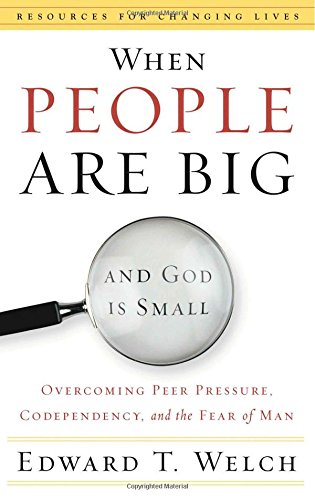
When People Are Big and God is Small: Overcoming Peer Pressure, Codependency, and the Fear of Man
Edward Welch